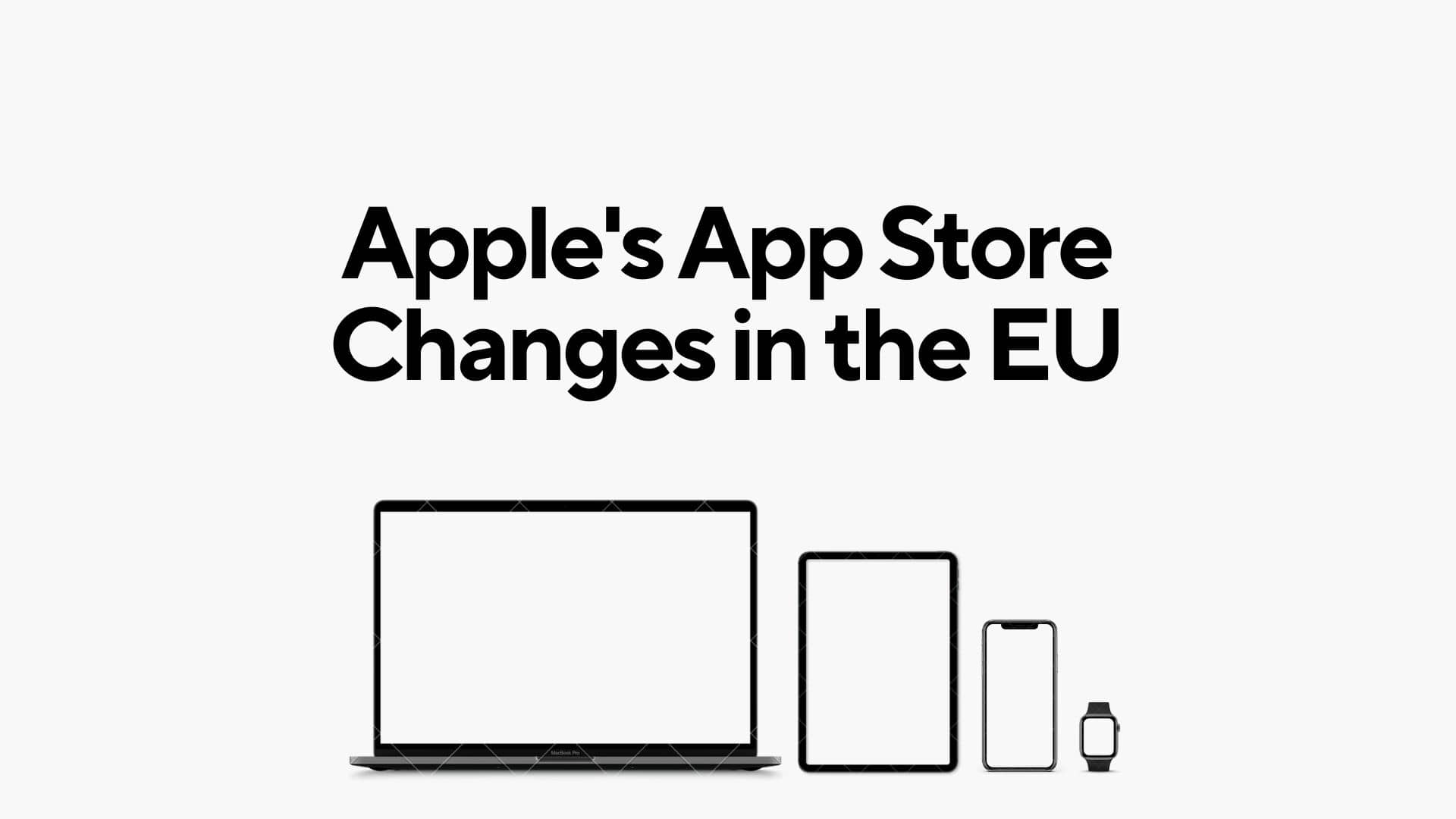Apple's App Store Changes in the EU: What You Need to Know

Apple, the tech giant known for its closed ecosystem, is making significant changes in response to a new European law called the Digital Markets Act (DMA). The law aims to address concerns of unfair competition by major tech companies, focusing on Apple's control over app downloads on iPhones through its App Store.
Impact on Developers:
Apple's new rule states that the first one million annual app installs per iOS account are free. However, after reaching this limit, developers will face charges. This change poses challenges for free or freemium apps that go viral, as they could end up paying substantial fees.
For instance, a freemium app with two million annual installs might need to pay over $45,000 per month or more than half a million dollars annually.
Options for Developers:
Developers of free and freemium apps have two choices. They can stick with Apple's current App Store terms, paying a 15-30% commission, or opt for the new terms.
Under the new terms, the commission drops to 17%, but a €0.50 Core Technology Fee (CTF) is introduced for each user's first annual install after one million installs.
Alternative App Stores:
In a significant shift, Apple will allow alternative app stores on iPhones. Developers can choose not to use Apple's in-app payment system, but they must still pay the CTF. This opens new possibilities for app distribution but comes with additional costs.
Criticism and Concerns:
The changes have faced criticism, especially from major developers like Epic Games. They argue that Apple's moves may not comply with the DMA and give Apple control over competing app stores. Epic Games CEO Tim Sweeney has called the proposed changes "hot garbage."
New Fees and Commissions:
Under the new terms, the commission drops to 17%, with an additional 3% fee for using Apple's payment system. This means developers could face a total commission between 13% and 20%. If using alternative payment systems, the 3% fee is waived. Additionally, there's a €0.50 CTF for each user's first annual install after one million installs.
Waivers and Exceptions:
Apple is waiving the CTF for nonprofit organizations, accredited educational institutions, and government entities approved for a fee waiver. However, this fee could be challenging for apps with millions of users, like Spotify, which might end up paying significant amounts.
Response to DMA:
In response to the DMA, Apple is allowing software developers to distribute their apps outside the App Store in the European Union. Starting in March, developers can offer alternative app stores on iPhones, opting out of Apple's payment system but still facing the CTF.
Developer Backlash:
Epic Games, known for its battle against Apple in the US, criticizes the changes, calling them insufficient for promoting competition. Despite the adjustments, some developers feel they are forced to choose between unfavorable options.
Global vs. EU Changes:
These changes are specific to the European Union, emphasizing the differing approaches Apple takes in response to regional laws. The company has recently made adjustments in the US but continues to charge commissions, unlike the EU.
Consumer Impact:
For consumers, this means potential changes in how apps are acquired. More choices might be available, and users could see different payment methods. However, critics argue that these changes may not fully achieve the DMA's goal of promoting fairness in the digital market.
Apple's response to the DMA brings significant shifts to its app store policies. While providing more options for developers, especially in the EU, the changes have sparked debates about their effectiveness and fairness. Users and developers will likely experience the impact of these adjustments in the coming months as the new rules take effect with the iOS update in March.